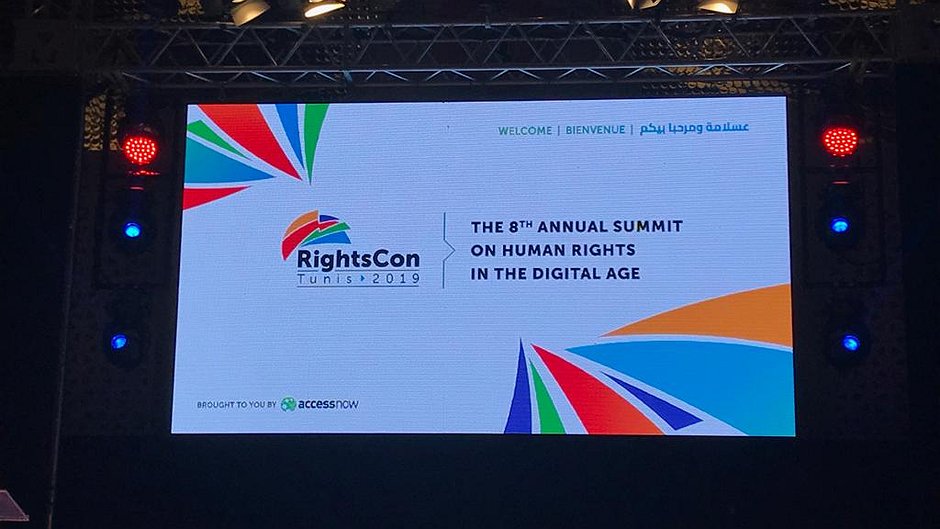
Rightscon 2019 roundup: AI, surveillance and open source investigations
If there’s one conference not to miss in 2019 for human rights defenders and journalists, it was last week’s RightsCon conference. This year, more than 2500 participants from 130 countries attended the summit in Tunis, Tunisia. Organised by Access Now, up to 16 different themes were covered ranging from artificial intelligence to digital inclusion, data, surveillance, law, and journalism. To mark Advocacy Assembly’s RightsCon attendance, here’s a roundup of some interesting trends and takeaways from the event.
1. Machine learning 101 for human rights activists
The University of California, Berkeley’s Social Science Data Lab presented a thorough and useful presentation on the basics of machine learning. Attendees heard a thorough description of hate speech research online followed by a code demo that guided participants to understand the basic elements of machine learning for hate-related textual data. With over 150 attendees in the room, the presentation was one of the more popular sessions at RightsCon. The tutorial provided an excellent example of how machine learning can be applied to the work of human rights defenders.
2. New media, old censorship: Defending press freedom across borders and media platforms
The Committee to Protect Journalists gave an interesting talk on how new media and old media are facing different types of censorship and the impact surveillance has on press freedom. The lightning talk examined censorship in the region, ranging from the widespread blocking of websites in Egypt and hacking campaigns in Saudi Arabia to censorship at the printing press in Algeria and Sudan. The CPJ also explained how authorities target media outlets across different platforms.
3. International protocol for open source investigations
On the second day of RightsCon, a fascinating panel discussion was held between researchers, prosecutors and other collaborators who have worked to draft the international protocol on open source investigations. The project and discussion were spearheaded by the Human Rights Center at UC Berkeley. The panelists discussed how in recent years, war crimes investigators and human rights defenders have come to increasingly rely on social media and other open source information to build cases for prosecution, advocate for international action in the face of human rights violations and combat disinformation. Such content could support the findings of commissions of inquiry or serve as powerful evidence in legal proceedings. However, in order to be admissible in court, investigators must be able to show that the information was collected and preserved in line with accepted international standards.
Related courses

90 mins
 School of Data
School of Data
90 mins
 School of Data
School of Data Rory Peck Trust
Rory Peck Trust
50 mins
 Rory Peck Trust
Rory Peck Trust
Blogs

6 useful resources for journalists covering Covid-19
With a global pandemic spreading throughout the world, journalists are under increasing pressure to report accurate and relevant news for the masses. Often when covering a crisis, those on the reporting frontlines compromise their physical safety and mental health. To show some solidarity, the Advocacy Assembly team curated a list of useful resources from other organisations leading the way on this.

5 ways to find data for your next story
Data journalism is fast becoming a big trend in newsrooms across the globe. However, data isn’t always so easy to find. Here are five ways to get data for your next article.



